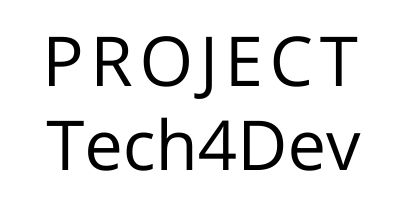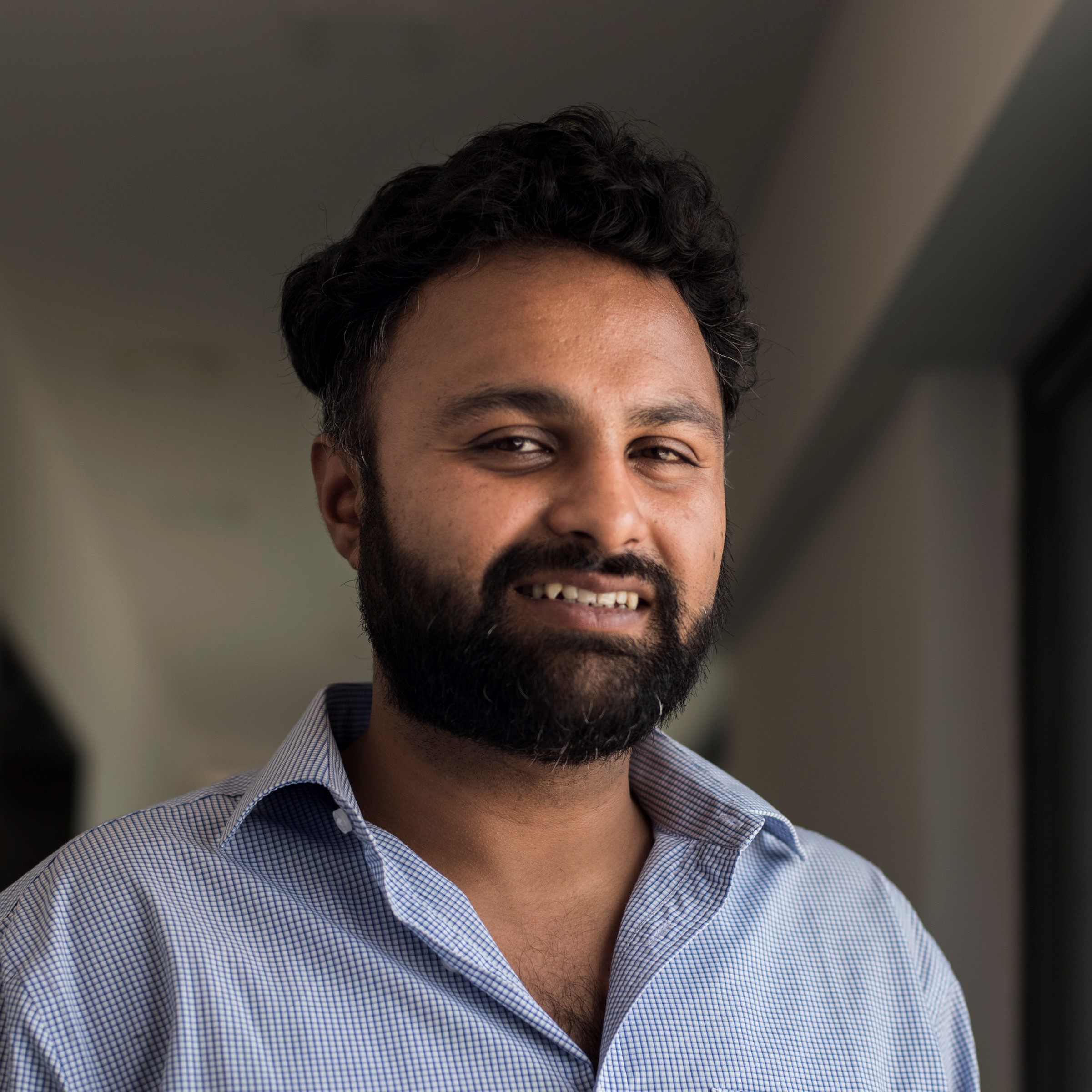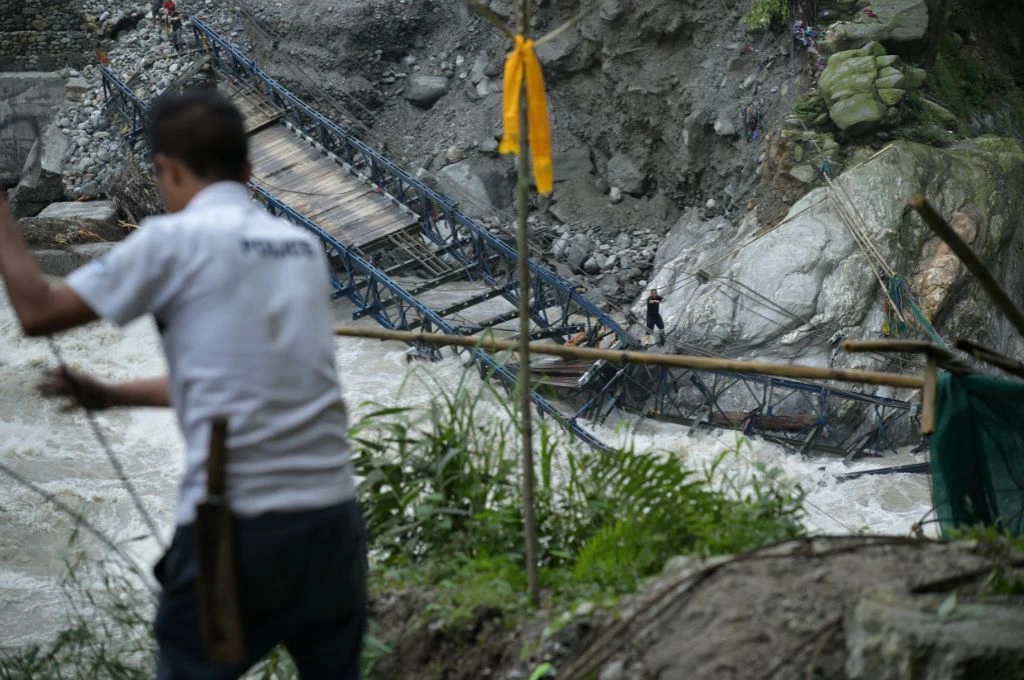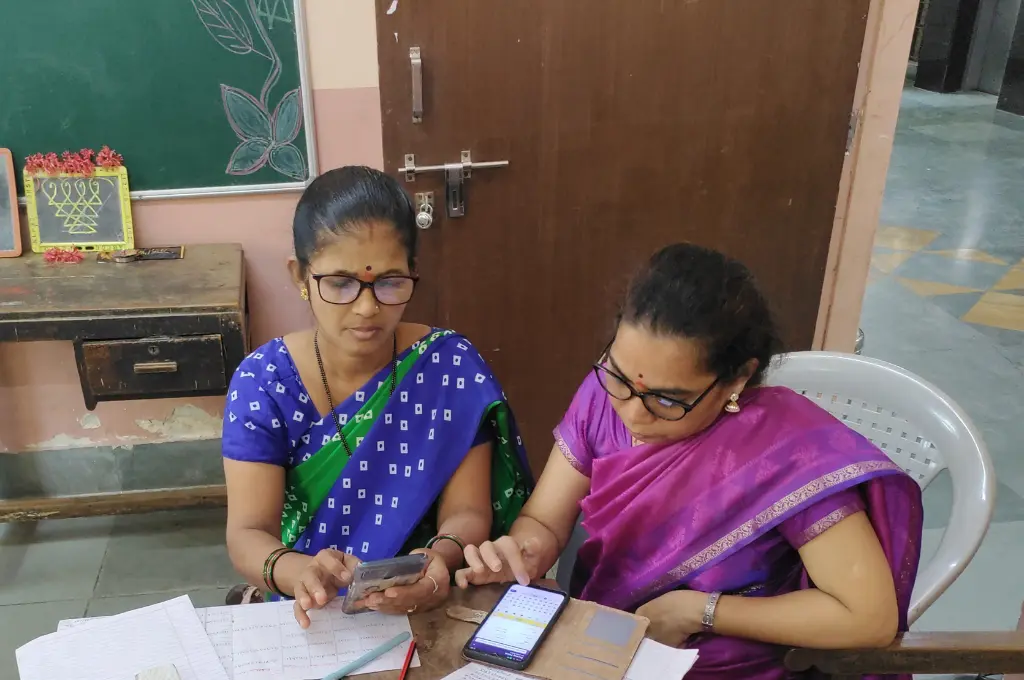COVID-19 and subsequent lockdowns have changed the way companies and organisations work, including those in the social sector. While some of them have had to shift focus from their core programmes towards relief efforts, thereby stretching their existing resources, most have had to move to remote working models. Doing so has highlighted the limited digital skills and capacities within the sector, and the need to strengthen them. Moreover, in today’s remote working reality, tech and data-related roles have become essential. However, the overall increase in demand for technically trained talent relative to supply has led to an increase in expected salaries for these roles. And so, for social enterprises, most of whom have limited budgets, recruiting new talent has become nearly impossible.
With the increasing demands on the sector, investing in digital capacity and infrastructure has become an even more crucial point of conversation than it was pre-pandemic. Social enterprises, therefore, need to look at building in-house capacity through training and development modules that not only help fill skill gaps within the organisation, but also help retain existing talent. This applies not just to staff at the headquarters, but also field staff whose work is crucial to the success of the organisation.
Building in-house capacity by upskilling field staff
The majority of our roles in the social sector have been in operations, giving us the opportunity to interact with multiple field workers. We have observed a growing sense of insecurity across different sectors. As most fieldwork in the sector is tenure-based, being limited to a particular programme, professionals at the grassroots are constantly unsure about the security of their tenure. They are also often left out of the daily functioning of the organisation in which they work. Both for the employee and the employer, therefore, there is no incentive to build their capacity, as there is no vision beyond the project. This can affect field cadres’ commitment and motivation levels, affecting how much they might invest towards improving the programme. This is understandable given that many may not see an association with the organisation beyond their contractual obligation.
For a sector that relies heavily on field workers, upskilling them serves the larger ecosystem because they are then better skilled for their next project.
However, field staff should be viewed not as temporary contractors or consultants, but people who are within the fold of an organisation, so they too can develop their skills and further their careers. At Haqdarshak, the organisation we lead, they play a key role as last-mile delivery agents and help with the effective implementation of government schemes and policies. In the case of social enterprises, they also act as their ears and eyes on the ground. Their knowledge and insights help the organisation understand the real-time problems of communities. Field cadres are also able to provide valuable and frequent feedback on existing programmes.
For a sector that relies heavily on these cadres of workers, upskilling them serves the larger ecosystem because they are then better skilled for the next project they work on, and the next, and so on. Moreover, as the government continues to rely on the social sector to aid COVID-19 relief and rehabilitation efforts, and with physical distancing and remote working in the mix, digital upskilling of field cadres has become necessary.
How to think about building the capacity of field cadres
Customise your programmes, and don’t assume digital literacy
Our experience has taught us that it’s important to develop skill-building programmes tailored to people’s qualifications, their needs, and what their role requires. We train local people from rural and urban communities, whom we call Haqdarshaks—someone who shows you your rights—on the Haqdarshak app. The app helps them discover eligible welfare services for communities. It also provides a support system to them, so they can help communities apply for government schemes, and access their entitlements and benefits. This frontline cadre is renumerated either by us or by the citizens who pay a nominal service fee to them.
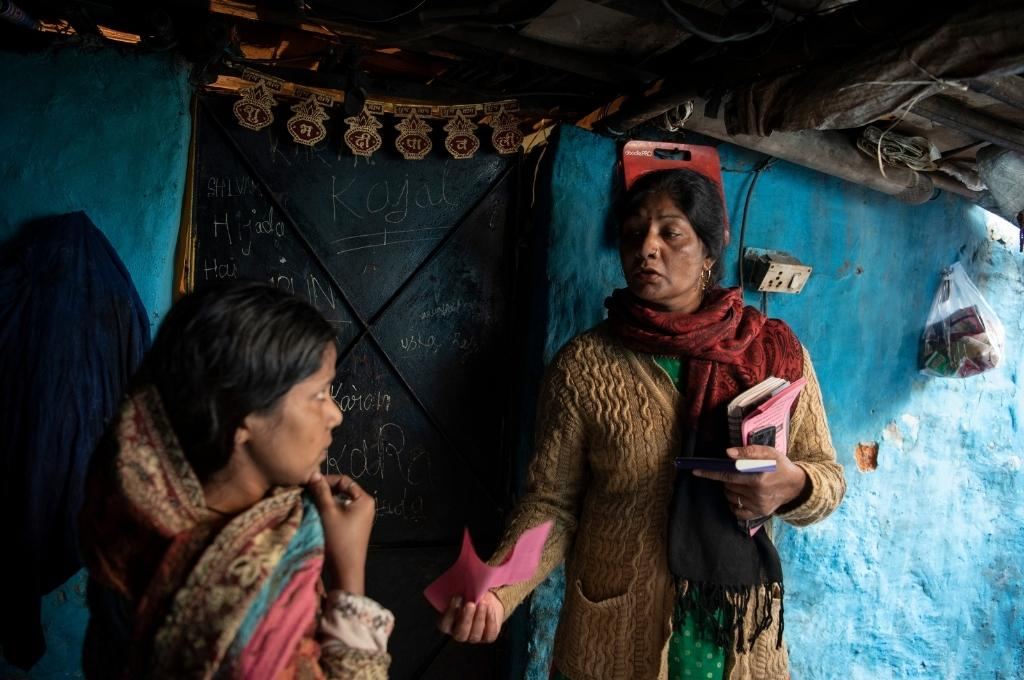
Today, we have 330 full-time staff, with 210 operating on the field, along with 10,000 Haqdarshaks. Since our model leverages technology to bridge the information gap between governments and communities on the ground, digital literacy has always been a core component of our training modules for field staff. But we have different modules for our field staff, based on their roles and their existing skillsets.
Most of the women members who come on board as Haqdarshaks are first-time smartphone users, so we don’t train them just on government schemes. We train them on basic aspects of using a smartphone too. This is because many communities, especially in rural areas, use their smartphones primarily to consume—for instance, to watch videos on YouTube, or use WhatsApp or Facebook. Very few people leverage their phones completely. For example, when we began training local women to become Haqdarshaks, we realised that most of them did not know how to change a letter key to a number key on their keypad, or how to clear the memory on their phones. They could not switch between upper case and lower case characters for passwords. We tend to assume that if people have smartphones, they will know how to do basic things, but our experience has taught us that this isn’t the case. Their gaps in knowledge are understandable, given the specific purposes for which women might use their phones. And so it’s important to spend time understanding the gaps and addressing them before getting into more sophisticated training.
Training needs to incorporate both theory and practical application, with ongoing support
After walking Haqdarshaks through the features of the app and how to use it, we ensure that we give them assignments so they can practice going through the various processes and using the tools that the app offers. For instance, we task them with making dummy profiles of people and tracking their application status on the app’s dashboard.
This combination, of refresher trainings and ongoing support, is crucial for a tech product
While this kind of initial training is helpful to get them started, it’s only once they are out in the field that they will truly learn how to use the app, and have more questions for us. Given this, we provide a refresher training after one month; and for every 30-40 Haqdarshaks, we assign a coordinator at the district level. Their job is to meet Haqdarshaks and help answer their questions regarding the functioning of the app, as well as their queries regarding government schemes. We’ve also set up a helpline that Haqdarshaks can call, besides creating active WhatsaApp groups to answer any immediate queries.
This combination, of refresher trainings and ongoing support, is crucial for a tech product. In our case, we update our app every 15 days with new features, as well as new information regarding government schemes. While we have push notifications that reach all Haqdarshaks, we cannot rely solely on those to explain new features. In other words, our training cannot be entirely digital. Our coordinators and the helpline provide the necessary support for our Haqdarshaks.
Tech training is as much about soft skills, as it is about the technology
It is not uncommon for field workers to be new to smartphones or technology. Many may not have prior experience working with a range of stakeholders, from government officials to local community leaders. For this reason, it’s important to think about both personal confidence as well as social and local dynamics.
We realised then that our tech training needs to also build buy-in from family members.
When we began training women, we realised that they were hesitant to offer their services in exchange for money, especially to men. They were worried about the perceived social implication of the transaction. Importantly, their husbands and families did not want any untoward associations as a result of this work. We realised then that our tech training also needs to build buy-in from family members. So we invited husbands and brothers to our sessions as well. This offered another advantage later on, when women had to rely on male family members to drive them around on their scooters, so they could do their job.
Co-create curriculum with those who are expected to benefit from your training
While offering a variety of training programmes and ongoing support for skill development is helpful, it’s not enough. Any efforts at imparting skills must be modified based on the evolving needs of field workers. Importantly, they must also incorporate their feedback, so that modules can be structured better and can help solve their particular challenges better.
We’ve found that incorporating feedback also helps ensure greater buy-in from the people the programme is intended to serve.
We saw this with an English language programme we run for our field staff. Our full-time field staff, which includes fellows and field coordinators, requested that we also focus on email etiquette, and how to better communicate with clients professionally. This feedback has been invaluable in strengthening our training programme and equipping our staff with the skills they need to do a good job. Additionally, we’ve found that incorporating feedback also helps ensure greater buy-in from the people the programme is intended to serve.
Decentralised models of training have a better shot at success
In the social sector, we know that local context varies widely and programmes need to account for these differences, in order to succeed. When it comes to training field cadres that work across the country, we have found that a decentralised model works best. At Haqdarshak, while our content is centralised, we offer a lot of flexibility to local teams to adapt the modules based on their needs and contexts. This ensures that our trainings factor in social, cultural, linguistic, economic, and political differences across regions.
For instance, in the northern states, we tend to spend more time getting buy-in from male family members, than we do in the southern states. In the Northeastern states of Assam and Nagaland, we spend less time on teaching basic features of smartphones, than in Bundelkhand, for instance, where women need more handholding.
While our training has always prioritised decentralisation, as we have scaled and learned along the way, we’ve been able to decentralise further. In other words, it’s possible to follow a decentralised model even when you are small. Our challenge continues to be leveraging technology better in our training programmes, and in the process reducing the need for manual intervention. We are exploring the use of audio and podcasts to train people about new schemes and new features on the app. However, that requires an entirely different skillset; perhaps it will be the next phase in our capacity building programmes for our teams.
This is the second article in a 8-part series which seeks to build a knowledge base on using technology for social good.
—
